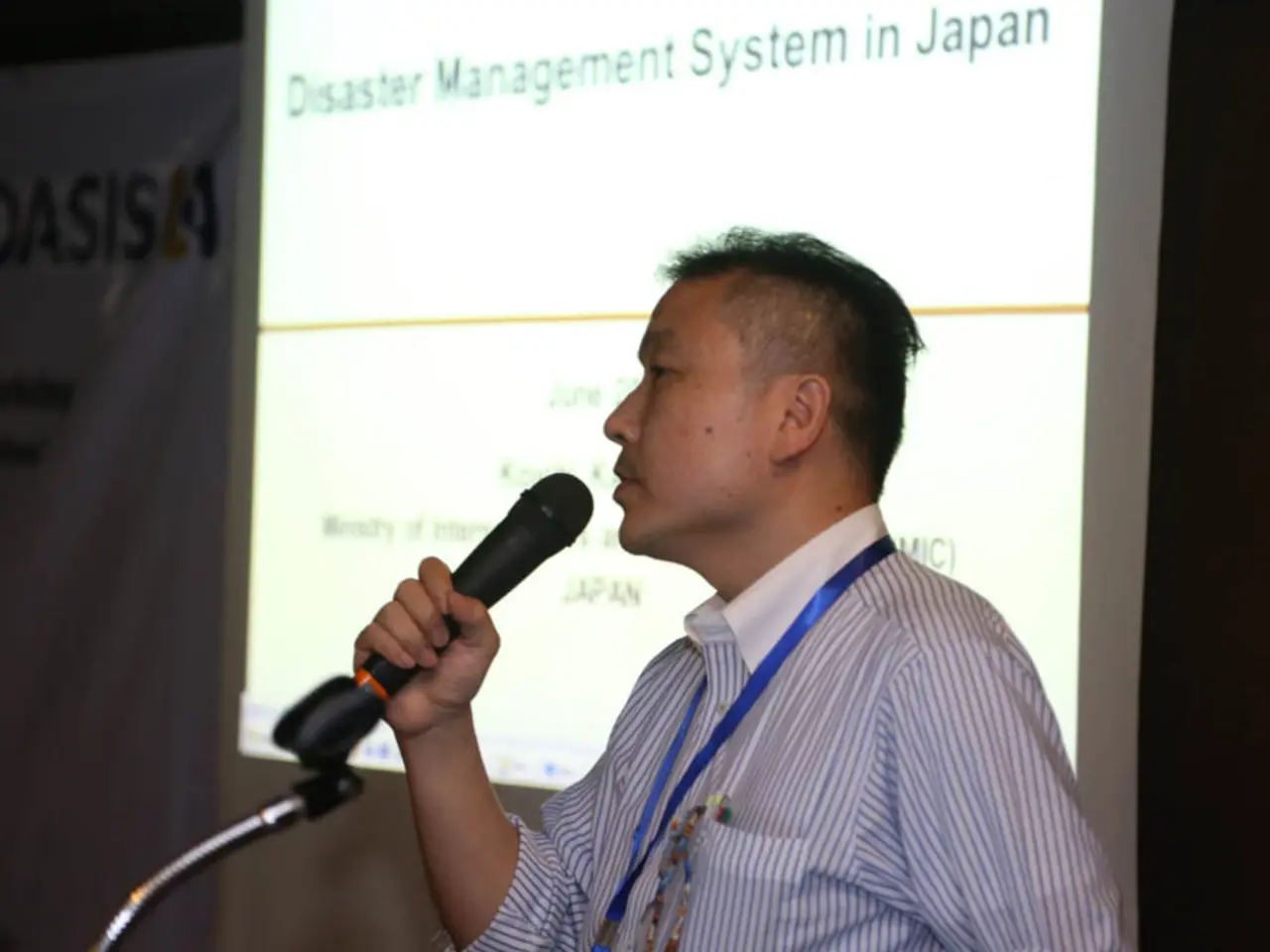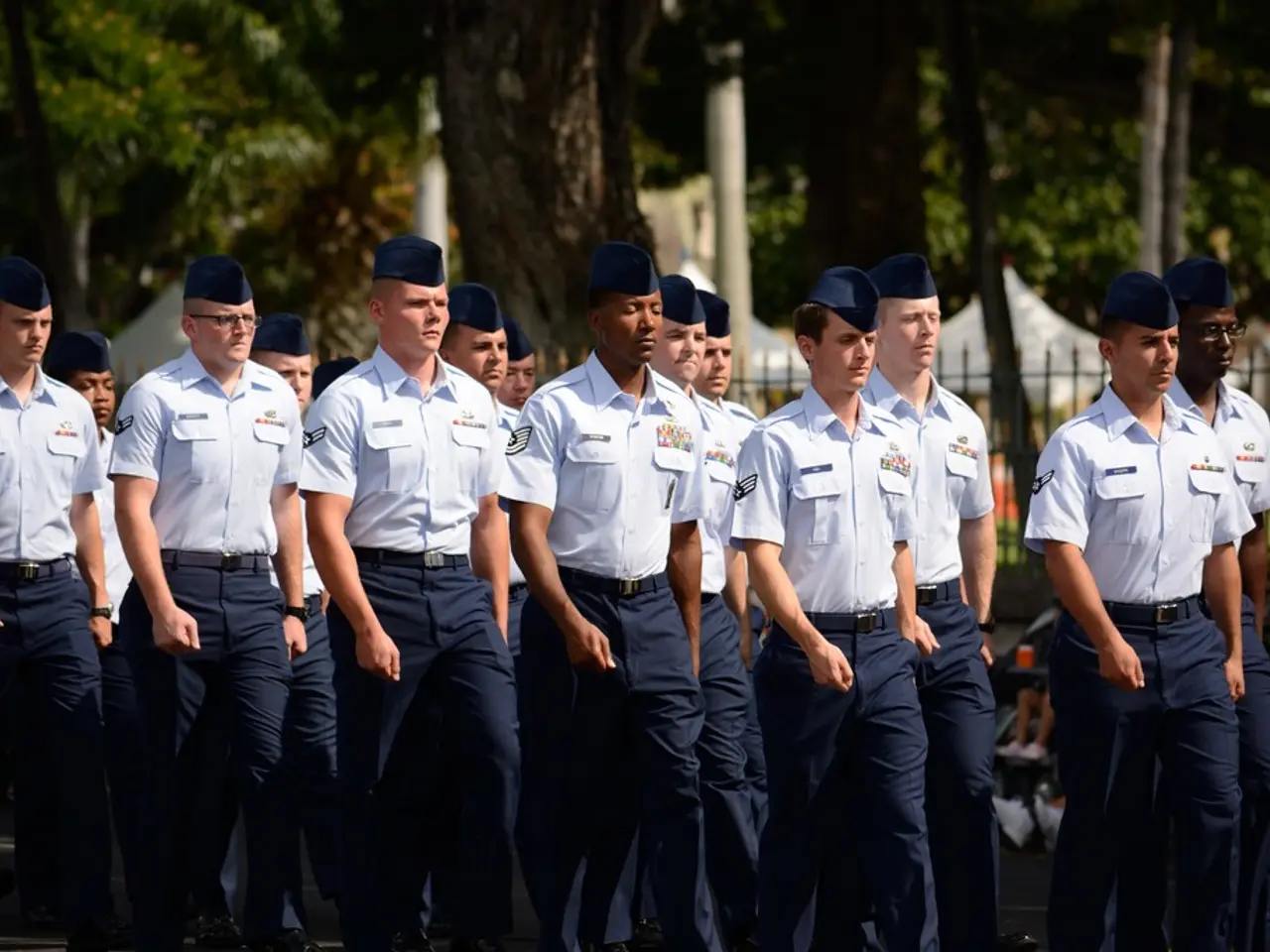United States carries out removal of 8 individuals to South Sudan, following prolonged court battles
In a controversial move, the U.S. government has deported eight immigrants with criminal convictions to South Sudan from a military base in Djibouti. The men, hailing from countries including Cuba, Mexico, Laos, Myanmar, Sudan, and Vietnam, were convicted of serious crimes such as murder, homicide, sexual assault, lascivious acts with a child, and robbery.
The Trump administration had initially faced legal challenges that temporarily halted the deportations. A Boston judge, whose rulings had led to the initial halt of the administration's effort to begin deportations to South Sudan, was the person best positioned to rule on the request. However, the U.S. Supreme Court cleared the administration to proceed, overriding the lower court restrictions and enabling the deportations to South Sudan.
The decision to deport the men to South Sudan, a conflict-ridden country plagued by armed conflict and political instability, has raised concerns about their safety and the legality of the deportations. None of the deportees is originally from South Sudan; their removal there is unprecedented and part of a broader crackdown on illegal immigration by the Trump administration.
The Department of Homeland Security described the deportees as "barbaric criminal illegal aliens," highlighting the severity of their crimes and stating that their own countries refused to accept them. The deportations also drew criticism from immigrant rights advocates who sought to halt them through the courts.
The flight carrying the men was initially detoured to Djibouti due to a violation of a federal judge's order. The men were held under guard for weeks at a military base in Djibouti before their eventual deportation. Authorities have reached agreements with other countries to house immigrants if authorities cannot quickly send them back to their homelands.
By Friday evening, a judge evaluated a last-ditch appeal by the men before deciding he was powerless to halt their removals. The Supreme Court's ruling cleared the way for the transfer of the men to South Sudan, where they arrived on Friday. This case illustrates complex legal and humanitarian issues surrounding deportations to third countries, especially conflict zones, and the tension between immigration enforcement and human rights protections.
- The controversial deportation of eight immigrants, who were convicted of serious crimes and hailing from various countries, to the conflict-ridden and politically unstable South Sudan has raised concerns about their safety and the legality of the deportations, as none of the deportees are originally from South Sudan.
- The Trump administration's decision to deport these eight immigrants, who were described as "barbaric criminal illegal aliens" by the Department of Homeland Security, is part of a broader crackdown on illegal immigration and has drawn criticism from immigrant rights advocates who sought to halt the deportations through the courts.
- This case involving the deportation of immigrants with criminal convictions to South Sudan highlights complex legal and humanitarian issues surrounding deportations to third countries, especially conflict zones, and the tension between immigration enforcement and human rights protections, as it illustrates the potential dangers these immigrants may face in a country they have no connection to.







